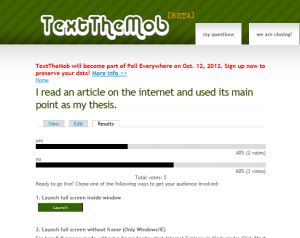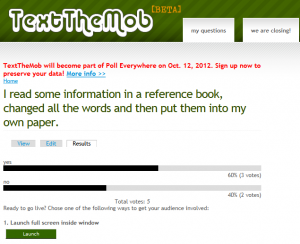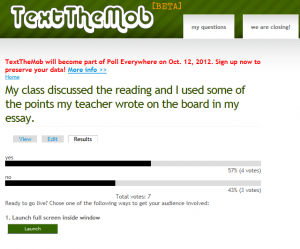Today we continued our discussion of the process of research. We took a look at Easybib.com, a new library resource that helps with documenting research resources and organizing ideas into an outline. For some help visualizing your ideas, try experimenting with concept mapping using bubbl.us, a way to organize your ideas by showing relationships between them. If you have questions about the annotated bibliography assignment, please get in touch. We’ll be discussing it more in the next few class meetings.
On Monday 10/29 we’ll discuss internet research strategies. For Monday please read Badke, chapter 6 (entire) and chapter 7, pp. 161-162 only. For your first research journal blog post, respond to the following questions in one 100-word post:
You are working on choosing a topic and developing a research question for your paper. What difficulties (if any) have you encountered as you work on your research proposal?
What strategies (if any) have you used successfully during this work?
What questions (if any) do you have about the assignment?
Slides from today are available here.
~Prof. Leonard






